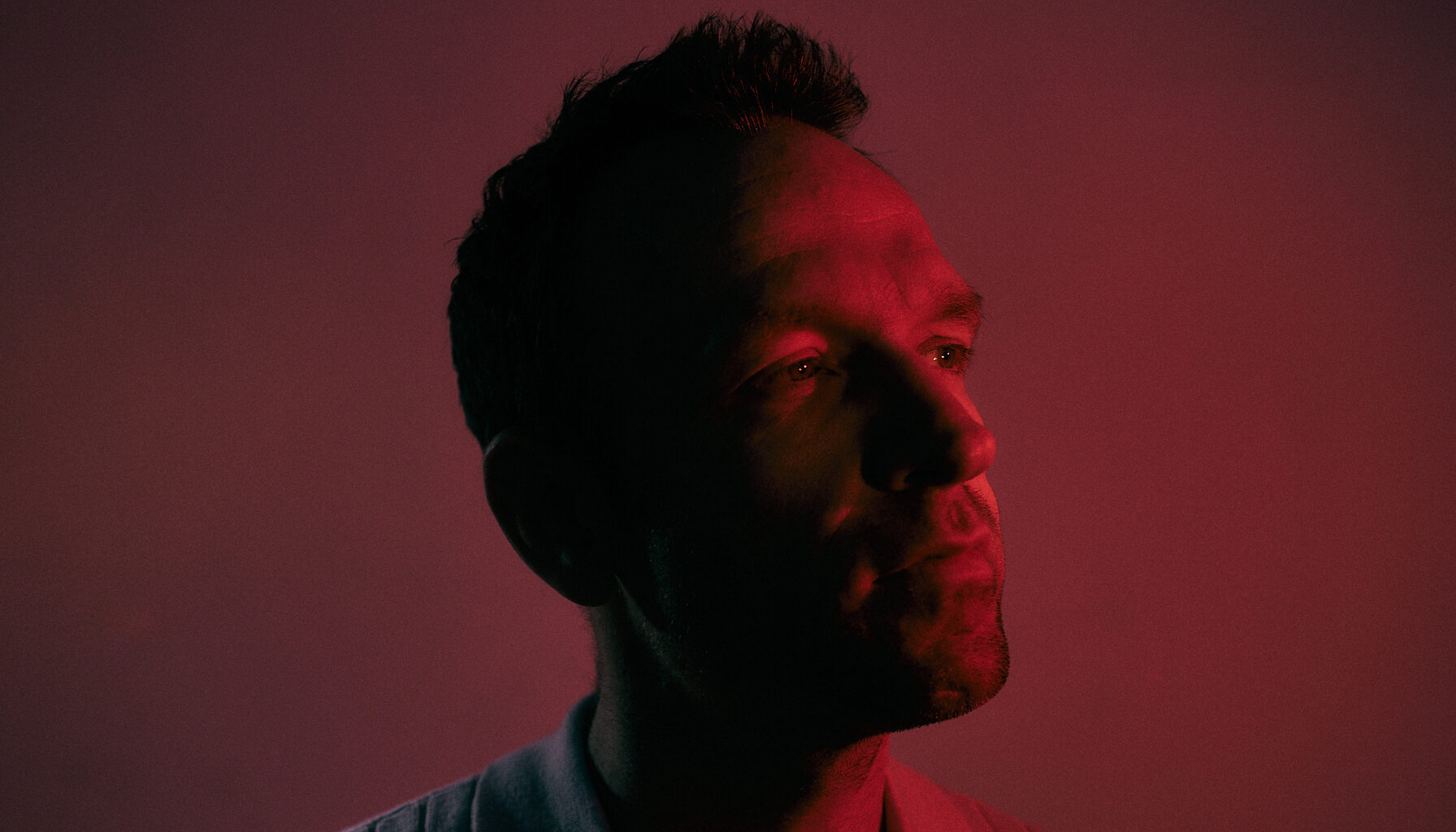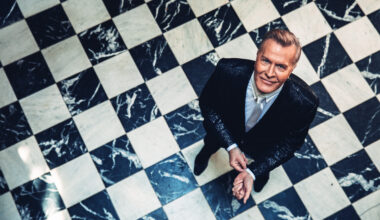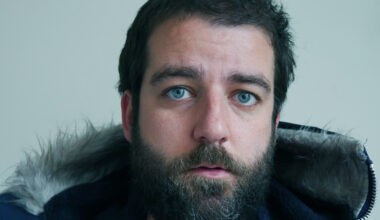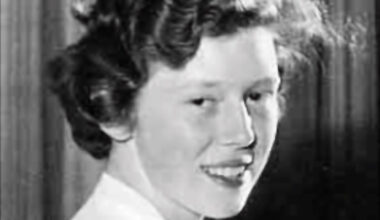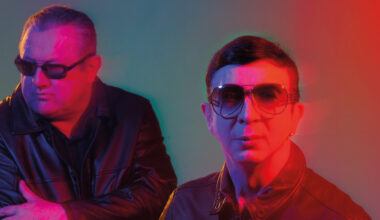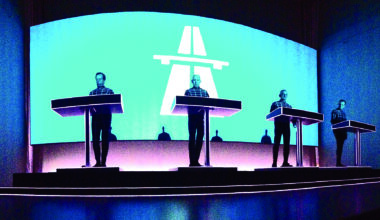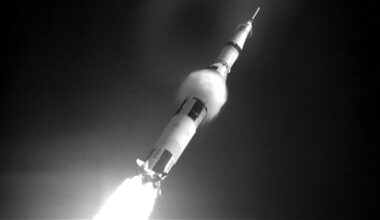You will most likely know the name MJ Cole from his dominance of the 1990s garage scene. His latest solo outing, ‘Madrugada’, takes him back to his roots, but not in the way you might think
Lift the lid of the Fender Rhodes electric piano in MJ Cole’s studio and, along with its inner workings, you’ll see a strange message. “This is not a banana plant,” it says, written clearly in black marker pen.
The author of this cryptic slogan is the instrument’s previous owner, Mike Skinner of The Streets. Skinner kindly donated it to Cole, who returned the favour by DJ-ing at a Streets after-party, adding the mischievous sign-off when he learned that Cole’s wife had put the kybosh on his plans to install it in his living room at home. The space was needed – yes, you guessed it – for a banana plant.
The piano, in all its various forms, is central to MJ Cole’s existence. He is best known for a succession of massive UK garage smashes, the soulful anthem ‘Sincere’ the biggest among them. In more recent times, his name has also cropped up on the credits of even more seismic tunes by Stormzy, Dizzee Rascal, AJ Tracey and Sam Smith.
We’re here in Cole’s studio at the Strongroom complex in east London, at the ungodly hour of 10am, because he’s about to unveil something very special – an album of impressionistic, uncompromisingly meditative, and unashamed ambience, all heavily based around his skills at the piano.
‘MJ Cole Presents Madrugada’ is a remarkable record, not only because of the radical departure in form and atmosphere from what we’ve come to expect of him, but also in the way it blurs the boundaries between genres and disciplines. The raw, intimate sound of Cole captured at the piano – complete with breathing and the familiar clink and clunk of pedals – is very much at its heart, sometimes embellished by sumptuous strings. As the album progresses, however, the palette of acoustic textures are subjected to a subtle level of sonic manipulation and tinkering. There are almost imperceptible shifts and changes across the 12 tracks that mean things are never quite as they seem.
The result is an enthralling and engaging step into the unknown.
In some ways, ‘Madrugada’ is a return to Cole’s roots rather than a new direction. He is classically trained and was, in his own words, a “whizz-kid”, winning his first piano competition at the age of five, playing a piece called ‘In The Meadows’.
“There was always a piano in the house,” he recalls. “My mum and dad played. Dad was a singer and an actor, so he was constantly playing music and singing things like Gershwin. I sort of grew up with that. I annoyed my mum by messing around on the piano, playing the same thing repeatedly, so in the end she was like, ‘Do you want to get lessons?’.”
Cole was awarded a bursary to study in the Junior Department of the prestigious Royal College of Music when he was 11 and later competed in the BBC’s Young Musician of the Year contest. But by the time he was 15, in the late 1980s, he had become seduced by a very different and altogether more modern form of music – hardcore rave.
“I became a little bit disillusioned with classical music when I was 15, because I suddenly started going out to all these raves and I got decks at home, which was really exciting,” he says. “As I was growing up, the piano stuff was incredibly exciting too, but when I got to 15, I sort of realised that most of the people involved were playing the same repertoire over and over again. Most modern classical music at that time was very atonal and purposely inharmonious, so it seemed that pianists were going to be playing old stuff for the rest of their lives. I thought, ‘I don’t want to do that, I want to be making new stuff’.”
For a while, his classical career existed alongside weekend trips to London parties like Telepathy, Raindance, Living Dream and Energy. He and a mate set up a rudimentary studio at home, powered by an Atari computer, but it was signing up for a music degree at City University, not far from where we’re now sitting, that fully tipped him into the technological side of music.
The course was the only BSc music degree in the country at that point, so science rather than arts-based, and Cole threw himself into it, even now claiming it to be “the best thing I ever did”. As well as basics like multitrack recording, he learned about the psychology of music, music therapy, and sound synthesis. It was a properly holistic view of the subject.
“I was obsessed with studios from then on,” says Cole. “I used to hide in the studio until it was all locked up. I’d spend the whole night there and then creep out in the morning.”
On leaving university, there was only one job he could picture himself doing – working in a studio. He sent out scores of CVs in search of an entry level job. George Martin’s AIR Lyndhurst in Hampstead responded positively, as did the legendary Metropolis in Chiswick, but it was the reply from leading jungle label SOUR (Sound Of The Underground) that he ultimately jumped on.
Getting paid £50 a week – £23 of which went on a travelcard – Cole started at SOUR as a runner, but was soon helping out on the engineering side of the label’s recording sessions. Through SOUR’s affiliation to the pirate radio station London Underground, he found himself working with garage DJs Ramsey & Fen on remixes of Kym Mazelle – despite knowing next to nothing about the genre.
“I was like, ‘I don’t really know what garage is’, so they brought a load of vinyl in and said, ‘Listen to this, we want to do something a bit like that’. I don’t think I’d ever heard any garage records before, so I was sort of busking it. I just put it together in the way that I understood, which turned out to be quite unusual. But then I got a taste for it. I realised I could put more music into garage than I could with drum ‘n’ bass, which ended up being too soft.”
Cole thinks it was his blissful ignorance of the rules of garage that gave him an edge and made his productions stand out from the crowd. He remembers being told by a distributor that his single ‘Sincere’ probably wouldn’t sell many copies. The record, which he’d made in his bedroom, became an Essential Tune on Pete Tong’s Radio 1 show, and is now remembered as one of the biggest tracks of the late 90s UK garage scene.
The single spawned a career that delivered two huge solo albums on Gilles Peterson’s Talkin’ Loud label – his 2000 debut, also called ‘Sincere’, and 2003’s ‘Cut To The Chase’ – not to mention a bulging DJ schedule. He has remained in demand as a producer too, working with a number of notable artists and most recently helping Stormzy create ‘Crown’, the second single from his latest LP, ‘Heavy Is The Head’.
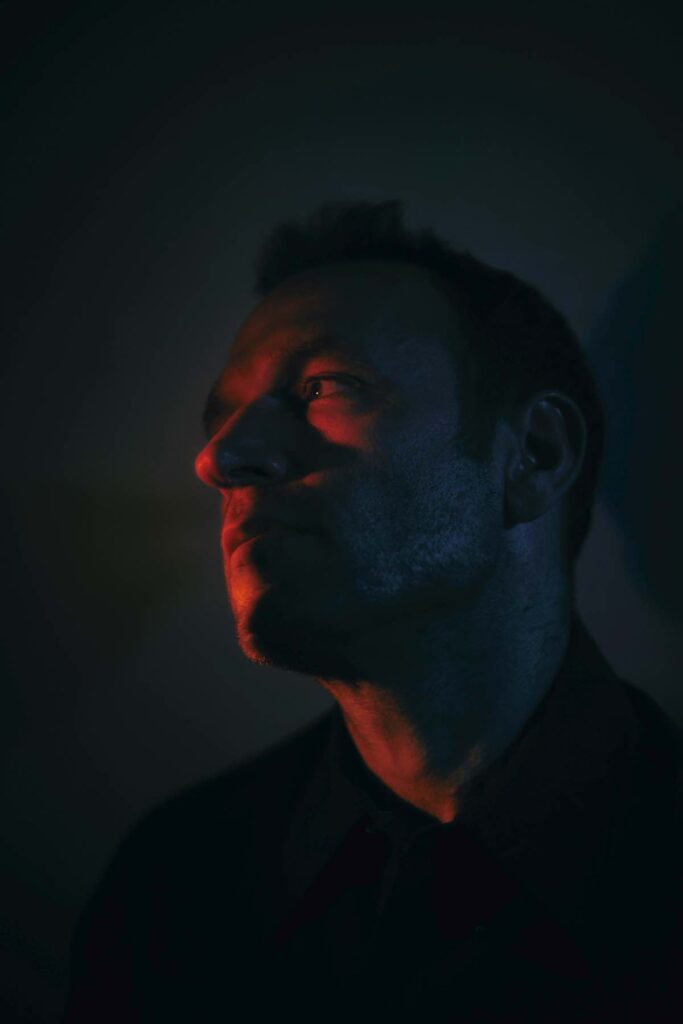
While he acknowledges that there are those who will greet ‘Madrugada’ with a bewildered cry of “Where’s the fucking garage, man?!”, Cole feels those who have followed his music more closely will appreciate the links.
“This has been in my music all along – the piano, the strings, the textural stuff,” he says. “I feel comfortable with it, it’s coming from a genuine place.”
The title of the album was inspired by the Spanish word for the period between midnight and sunrise. It’s a special time when so much magic happens, whether it be musical inspiration – Cole has been known to get up to lay down an idea in the middle of the night – or simply appreciating his surroundings on a lonely motorway drive home from a DJ gig.
To Cole, ‘Madrugada’ is not simply his third solo album, it’s more like the start of something new. He likens the relative speed at which the record was made – “It flowed out pretty nicely” – to a debut album, where ideas that have often been percolating for years finally find their moment to emerge.
“I always like to follow my nose,” he says. “And you need to be excited when you’re making music. Part of that is pushing the envelope and seeing how far you can take things just for fun.”
This is the summation of all his experiences, he reckons, rather than a spotlight on one area. He worked pretty much the same way as ever, even if the source material was different.
“Because I come from a background where everyone had an Akai sampler and everything was being chopped up, I love to have a range of sounds across the keys,” he says. “I do work in quite a sampler way, even though the sampler is actually inside the computer now. I like little cells of sound and I end up finding great combinations.”
The big change this time round is what Cole says is the amount of “air” on the album. He’s referring to the space between microphones and instruments, and explains how nearly all the elements on ‘Madrugada’ were recorded externally, rather than generated inside machines.
Most notably, he employed a 14-piece string section to add their magic during a session at the historic RAK Studios. He admits that they brought a tear to his eye as he sat in the live room while they recorded their parts for the track ‘Cathedral’. Conversely, another favourite moment on the album exclusively features – some sub-bass aside – sounds generated on his traditional Yamaha upright piano, including its distinctive percussion.
“The percussion is me doing this [knocks on piano with knuckles]. I literally played loads of piano parts and then totally mangled them – reverbed them, reversed them, pitched them up, pitched them down…”
Get the print magazine bundled with limited edition, exclusive vinyl releases

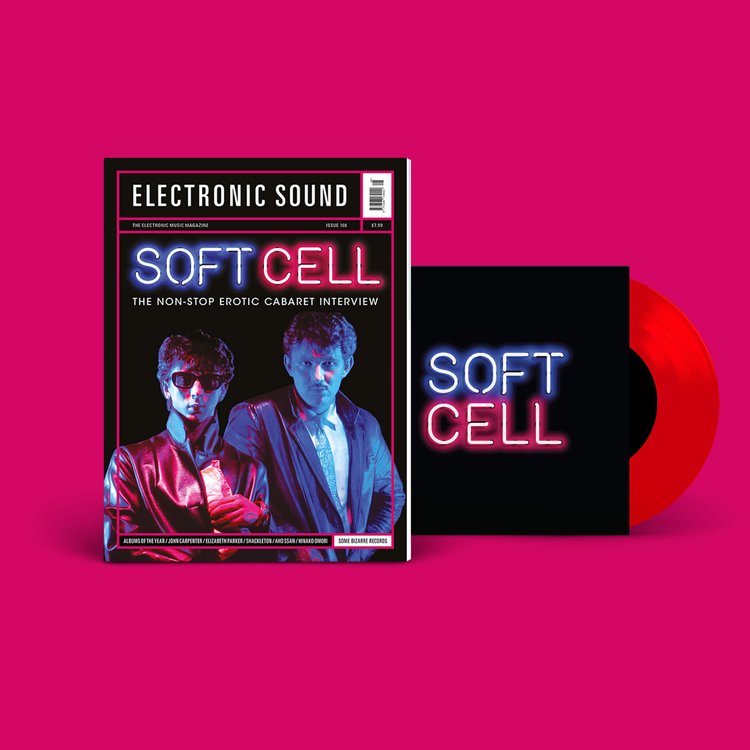
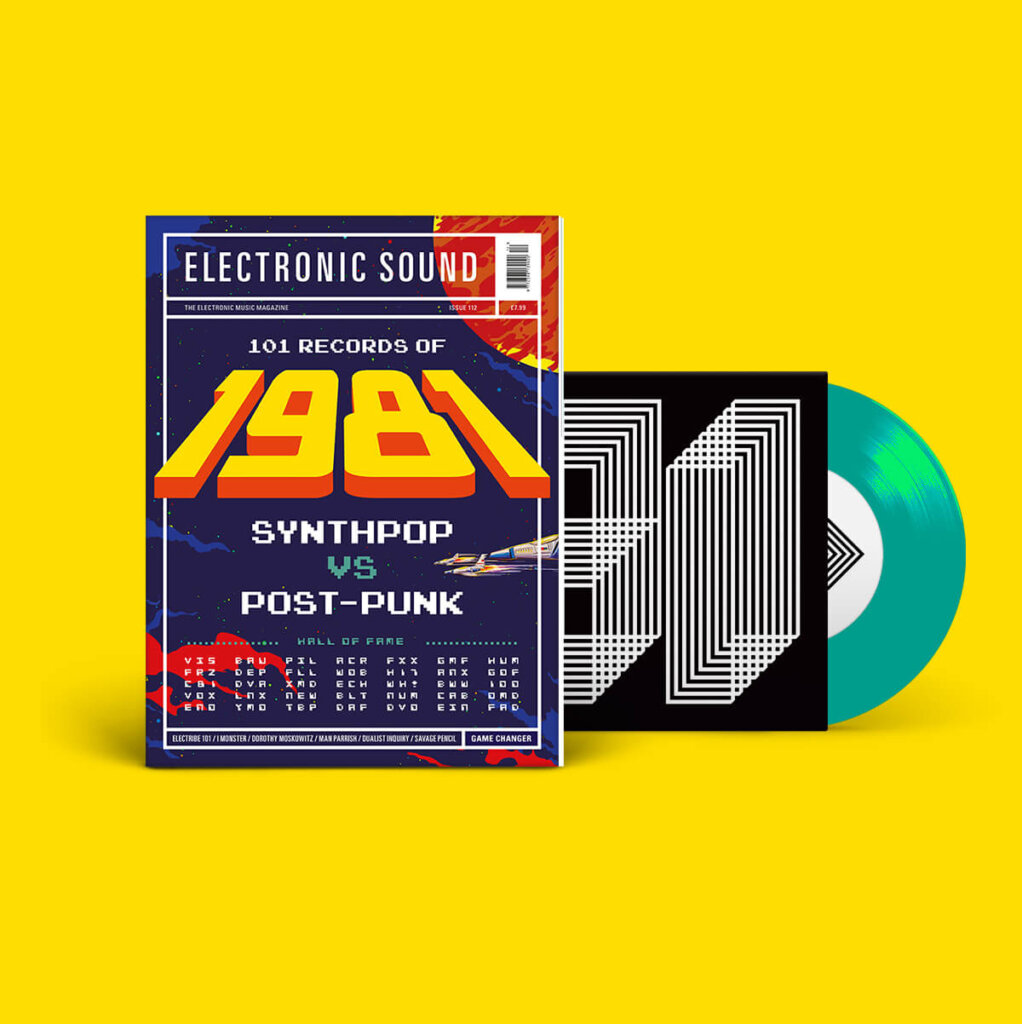
Cole’s studio set-up actually seems surprisingly modest, although he says he recently cleared out a number of synths that he’d “rinsed out” before moving into the Strongroom. He built his previous studio, part of a complex in Clerkenwell, over the course of seven years and eventually sold it to Sony.
As well as his Rhodes and Yamaha pianos, there’s a choice selection of analogue synths, namely an original Prophet-6 and the corresponding Sequential re-creation by Dave Smith, which he mainly uses for pads and textures, plus the “amazing bass machine” that is the Moog Sub 37 and a microKORG. There’s plenty of room for manipulation once the sounds have been fed through pre-amps and old skool EQs into his Logic software.
Cole keeps a pair of CDJ decks handy too, which often comes into play when a new track is close to completion. The most effective way to judge its roadworthiness is a spin in the middle of his current DJ set.
“The piano and my decks are my friends really,” he laughs. “I’ve always had a set of decks around and I have to have a piano wherever I’m working. I’ve got a really nice Steinway at home, but this Yamaha is the one I made the album on. They all have their own individual characters, so I guess with this record my piano should really take a bit of the credit as a character in its own right.”
‘MJ Cole Presents Madrugada’ is on Decca
